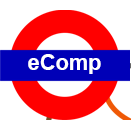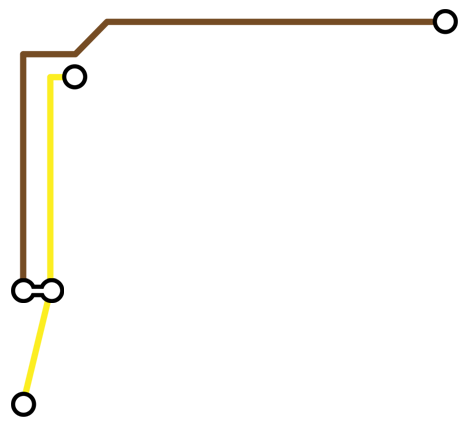Allen, I. Elaine, & Seaman, Jeff. (2014). Grade change: Tracking online education in the United States. Oakland, CA: Babson Survey Research Group and Ouahog Research Group, LLC.
Anzaldúa, Gloria. (1999). Borderlands: La frontera. San Francisco, CA: Aunt Lute Books.
Baldwin, James. (1979, July 29). If Black English isn’t a language, then tell me, what is? The New York Times. Retrieved June 13, 2015, from http://www.nytimes.com/books/98/03/29/specials/baldwin-english.html
Barczyk, Casimir, Buckenmeyer, Janet, & Feldman, Lori. (2010). Mentoring professors: A model for developing quality online instructors and courses in higher education. International Journal on E-Learning, 9(1), 7–26.
Bazerman, Charles. (1992). The interpretation of disciplinary writing. In Richard Harvey Brown (Ed.), Writing the social text: Poetics and politics in social science discourse (pp. 31–39). New York, NY: Transaction Publishers.
Borton, Sonya & Huot, Brian. (2007). Responding and assessing. In Cynthia Selfe (Ed.), Multimodal composition: Resources for teachers (pp. 99–111). Cresskill, NJ: Hampton Press.
Bourelle, Andrew, Bourelle, Tiffany, Knutson, Anna, & Spong, Stephanie. (in press). Sites of multimodal literacy: Comparing student learning in online and face-to-face environments. Computers and Composition.
Bourelle, Andrew, Bourelle, Tiffany, Knutson, Anna, & Spong, Stephanie. (2014, March). Opportunities for access in online education: Assessing and comparing a multimodal curriculum in online versus face-to-face classes. Paper presented at the Conference on College Composition and Communication, Indianapolis, IN.
Bourelle, Tiffany, Bourelle, Andrew, & Rankins-Robertson, Sherry. (2013a). Employing a multiliteracies pedagogy through multimodal composition: Preparing twenty-first century writers. Computers and Composition Online, Fall 2013. Retrieved June 13, 2015, from http://www2.bgsu.edu/departments/english/cconline/bourelle/cc_intro.html
Bourelle, Tiffany, Rankins-Robertson, Sherry, Bourelle, Andrew, & Roen, Duane. (2013b). Assessing learning in redesigned online first-year composition courses. In Heidi McKee & Danielle Nicole DeVoss (Eds.), Digital writing assessment and evaluation. Logan, UT: Computers and Composition Digital Press/Utah State University Press. Retrieved June 13, 2015, from http://ccdigitalpress.org/dwae/12_bourelle.html
Boyd, Patricia Webb. (2008). Analyzing students’ perceptions of their learning in online and hybrid first-year composition courses. Computers and Composition, 25(2), 224–243.
Borton, Sonya, & Huot, Brian. (2007). Thinking about multimodality. In Cynthia Selfe (Ed.), Multimodal composition: Resources for teachers (pp. 99-111). Cresskill, NJ: Hampton Press.
Conference on College Composition and Communication. A position statement of principles and example effective practices for online writing instruction (OWI). (2013). Retrieved June 13, 2015, from http://www.ncte.org/cccc/resources/positions/owiprinciples
Duffelmeyer, Barbara. (2003). Learning to learn: New TA preparation in computer pedagogy. Computers and Composition, 20(3), 295–311.
Dunn, Patricia, & Dunne De Mers, Kathleen. (2002). Reversing notions of disability and accommodation: Embracing universal design in writing pedagogy and web space. Kairos: A Journal of Rhetoric, Technology, and Pedagogy, 7(1). Retrieved June 13, 2015, from http://kairos.technorhetoric.net/7.1/binder2.html?coverweb/dunn_demers/index.html
Durack, Katherine. (2013). Sweating employment: Ethical and legal issues with unpaid student internships. College Composition and Communication, 65(2), 245–272.
Estrem, Heidi & Reid, Shelley. (2012). What new writing teachers talk about when they talk about teaching. Pedagogy: Critical Approaches to Teaching Literature, Language, Composition, and Culture, 12(3): 449–480.
Gabriel, Martha & Kaufield, Kandra. (2008). Reciprocal mentorship: An effective support for online instructors. Mentoring and Tutoring: Partnership in Learning, 16(3): 311–327.
Gallagher, Chris. (2011). Being there: (Re)making the assessment scene. College Composition and Communication, 62(3), 450–476.
Gao, Fei, Zhang, Tianyi, & Franklin, Teresa. (2013). Designing asynchronous online discussion environments: Recent progress and possible future directions. British Journal of Educational Technology, 44(3), 469–483.
Gold, Sanford. (2001). A constructivist approach to online training for online teachers. Journal of Asynchronous Learning Networks, 5(1): 35–57.
Grant, Mary Rose, & Thornton, Heather R. (2007). Best practices in undergraduate adult-centered online learning: Mechanisms for course design and delivery. MERLOT Journal of Online Learning and Teaching, 3(4): 346–56. Retrieved June 13, 2015, from http://jolt.merlot.org/vol6no2/keengwe_0610.htm
Hanover Research Council. (2009). Best practices in online teaching strategies. Retrieved June 13, 2015, from http://www.uwec.edu/AcadAff/resources/edtech/upload/Best-Practices-in-Online-Teaching-Strategies-Membership.pdf
Hess, Mickey. (2007). Composing multimodal assignments. In Cynthia Selfe (Ed.), Multimodal composition: Resources for teachers (pp. 29–38). Cresskill, NJ: Hampton Press.
Hewett, Beth & Ehmann, Christa. (2004). Preparing educators for online writing instruction: Principles and processes. Urbana, IL: National Council of Teachers of English.
Hewett, Beth & Ehmann Powers, Christa. (2005). How do you ground your training? Kairos: A Journal of Rhetoric, Technology, and Pedagogy, 10(1). Retrieved June 13, 2015, from http://kairos.technorhetoric.net/10.1/binder.html?praxis/hewett/index.htm
Hewett, Beth, Minter, Deborah, Gibson, Keith, Meloncon, Lisa, Oswal, Sushil, Olsen, Leslie, Warnock, Scott, Powers, Christa Ehmann, Newbold, W. Webster, Drew, Julie, & De Pew, Kevin. (2011). The State-of-the-art of OWI. Initial report of the CCCC committee for best practice in online writing instruction (OWI). Urbana, IL: National Council of Teachers of English.
Hewett, Beth. (2013). Fully online and hybrid writing instruction. In H. Brooke Hessler, Amy Rupiper Taggart, & Kurt Schick (Eds.), A guide to composition pedagogies, 2nd ed. Oxford, England: Oxford University Press.
Hewett, Beth, & De Pew, Kevin Eric. (2014). Foundational practices in online writing instruction. Fort Collins, CO: WAC Clearinghouse Press. Retrieved July 27, 2015, from http://wac.colostate.edu/books/owi/
Hixon, Emily. (2008). Team-based online course development: A case study of collaborative models. Online Journal of Distance Learning Administration, 11(4). Retrieved June 13, 2015, from http://www.westga.edu/~distance/ojdla/winter114/hixon114.html
Horner, Bruce, Lu, Min-Zhan, Royster, Jacqueline Jones, & Trimbur, John. (2011). Opinion: Language difference in writing: Toward a translingual approach. College English, 73(3), 303–321.
Huot, Brian. (2002). (Re)articulating writing assessment for teaching and learning. Logan, UT: Utah State University Press.
Jaramillo-Santoy, Jamie & Cano-Monreal, Gina. (2013). Training faculty for online instruction: Applying technical communication theory to the design of a mentoring program. In Kelli Cargile Cook & Keith Grant-Davie (Eds.), Online education 2.0: Evolving, adapting, and reinventing online technical communication (pp. 91–112). Amityville, NY: Baywood Publishing Company.
Journet, Debra. (2007). Inventing myself in multimodality: Encouraging senior faculty to use digital media. Computers and Composition, 24(2), 107–120.
Ke, Fengfeng. (2010). Examining online teaching, cognitive, and social presence for adult students. Computers & Education, 55(2), 808–820.
Kress, Gunther. (2003). Literacy in the new media age. New York, NY: Routledge.
Maid, Barry & D’Angelo, Barbara. (2013). What do you do when the ground beneath your feet shifts? In Kelli Cargile Cook & Keith Grant-Davie (Eds.), Online education 2.0: Evolving, adapting, and reinventing online technical communication (pp. 11–24). Amityville, NY: Baywood Publishing Company.
Martin, Wanda & Paine, Charles. (2001). Mentors, models, and agents of change: Veteran TAs preparing teachers of writing. In Betty P. Pytlik & Sarah Liggett (Eds.), Preparing college teachers of writing: Histories, theories, programs, practices (pp. 222–232). New York, NY: Oxford University Press.
Mayer, Richard, & Moreno, Roxanna. (2003). Nine ways to reduce cognitive load in multimedia learning. Educational Psychologist, 38(1), 43–52.
Montes, Rosana, Gea, Miguel, Bergaz, Roberto, & Rojas, Belén. (2014). Generating lifelong-learning communities and branding with massive open online courses. Information Resources Management Journal (IRMJ), 27(2), 27–46.
Palloff, Rena & Pratt, Keith. (2001). Lessons from the cyberspace classroom: The realities of online teaching. Somerset, NJ: Jossey-Bass.
Palmeri, Jason. (2012). Remixing composition: A history of multimodal writing pedagogy. Carbondale, IL: Southern Illinois University Press.
Rankins-Robertson, Sherry, Bourelle, Tiffany, Bourelle, Andrew, & Fisher, David. (2014). Multimodal instruction: Pedagogy and practice for enhancing multimodal composition online. Kairos: A Journal of Rhetoric, Technology, and Pedagogy, 19(1). Retrieved June 13, 2015, from http://kairos.technorhetoric.net/19.1/praxis/robertson-et-al/index.html
Reid, Shelley. (2009). Teaching writing teachers writing: Difficulty, exploration, and critical reflection. College Composition and Communication, 61(2), W197–W221.
Rose, David H. & Meyer, Anne. (2002). Teaching every student in the digital age: Universal design for learning. Alexandria, VA: ASCD. Retrieved June 13, 2015, from http://www.cast.org/teachingeverystudent/ideas/tes/index.cfm
Salmon, Gilly. (2004). E-tivities: The key to active online learning. London, England: Routledge.
Schneckenberg, Dirk. (2011). Ecompetence to move faculty towards a sustainable use of learning technologies in higher education. In Manuela Repetto & Guglielmo Trentin (Eds.), Faculty training for web enhanced learning (pp. 109–124). New York, NY: Nova Science Publishers.
Selber, Stuart. (2004). Multiliteracies for a digital age. Carbondale, IL: Southern Illinois University Press.
Selfe, Cynthia L. (Ed.) (2007). Multimodal composition: Resources for teachers. Cresskill, NJ: Hampton Press.
Selfe, Cynthia L. (2009). The movement of air, the breath of meaning: Aurality and multimodal composing. College Composition and Communication, 60(4), 616–663.
Shea, Peter, & Bidjerano, Temi. (2013). Understanding distinctions in learning in hybrid, and online environments: An empirical investigation of the community of inquiry framework. Interactive Learning Environments, 21(4), 355–370.
Shipka, Jody. (2009). Negotiating rhetorical, material, methodological, and technological difference: Evaluating multimodal designs. College Composition and Communication, 61(1), W343–W366.
Shipka, Jody. (2011). Toward a composition made whole. Pittsburgh, PA: University of Pittsburgh Press.
Starr, Karen, Stacey, Elizabeth, & Grace, Lauri. (2011). Changing technologies/renewing pedagogies: Implications for university teaching and learning. In Manuela Repetto & Guglielmo Trentin (Eds.), Faculty training for web enhanced learning (pp. 95–108). New York. NY: Nova Science Publishers.
Stoll, Louise, & Seashore Louis, Karen. (2007). Professional learning communities: Divergence, depth and dilemmas. Columbus, OH: McGraw-Hill International.
Swan, Karen, Shea, Peter, Fredericksen, Eric, Pickett, Alexandra, Pelz, William, & Maher, Greg. (2000). Building knowledge building communities: Consistency, contact and communication in the virtual classroom. Journal of Educational Computing Research, 23(4), 359–383.
Takayoshi, Pamela, & Selfe, Cynthia. (2007). Thinking about multimodality. In Cynthia Selfe (Ed.), Multimodal composition: Resources for teachers (pp. 1–12). Cresskill, NJ: Hampton Press.
Taylor, Mark L. (2007). "Generation neXt comes to college: 2006 updates and emerging issues." In The Higher Learning Commission's A collection of papers on self-study and institutional improvement, 2006, Vol. 2 (pp. 48–55). Chicago, IL: The Higher Learning Commission.
Urbanski, Heather. (2010). Meeting the digital generation in the classroom: A reflection on the obstacles. In Writing the digital generation: Essays on new media (pp. 239–251). Jefferson, NC: McFarland Publishing.
Wang, Qiyun, & Huay Lit Woo. (2007). Comparing asynchronous online discussions and face to face discussions in a classroom setting. British Journal of Educational Technology, 38(2), 272–286.
Warnock, Scott. (2009). Teaching writing online: How and why. Urbana, IL: National Council of Teachers of English.
Weiser, Irwin. (2000). Self-assessment, reflection, and the new teacher of writing. In Jane Bowman & Kathleen Blake Yancey (Eds.), Self-assessment and development in writing: A collaborative inquiry (pp. 139–156). Cresskill, NJ: Hampton Press.
White, Edward M. (2005). The scoring of writing portfolios: Phase 2. College Composition and Communication, 56(4), 581–600.
Yancey, Kathleen. (1999). Looking back as we look forward: Historicizing writing assessment. College Composition and Communication, 50(3), 483–503.
Yancey, Kathleen. (2004). Made not only in words: Composition in a new key. College Composition and Communication, 56(2), 297-328.
Yuan, Jiangmei, & Kim, C. (2014). Guidelines for facilitating the development of learning communities in online courses. Journal of Computer Assisted Learning, 30(3), 220–232.
Zahner, Jane & Sterling, Sabrina. (2005). Donning the wizards’ hats: Online students learn to teach online. Distance Learning, 2(1), 29–34.
























